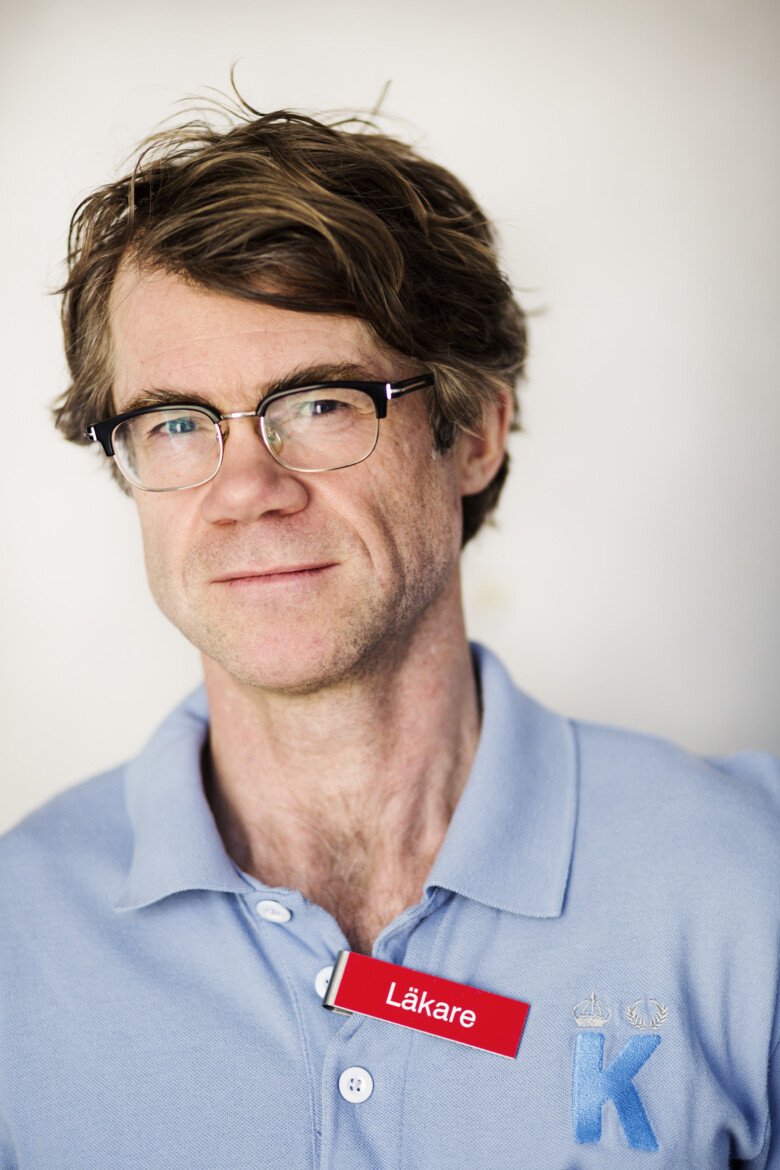New treatment can improve cardiac pump function in patients with heart failure

A clinical study by researchers at Karolinska Institutet and Karolinska University Hospital shows that the hunger hormone ghrelin can increase the heart’s pump capacity in patients with heart failure. The results have been published in the European Heart Journal.
Millions of people worldwide live with heart failure, a condition in which the pump function of the heart is reduced, such as after a myocardial infarction or angina. In heart failure, the heart muscle is weakened, leaving the heart unable to pump the amount of blood needed to provide the body with sufficient oxygen and nutrients. Treatments are available that slow the progression of the disease, but there are no methods that directly increase the heart’s pump function.
Ghrelin is an endogenous hormone that has many receptors distributed in cardiac muscle tissues. It increases the appetite and stimulates the release of growth hormones. The researchers believe that its receptors are a promising target for enhancing the heart’s pump function.

“Heart failure is the most common cause of hospitalisation in older generations and is associated with a poor quality of life and high mortality,” says principal investigator Lars Lund, professor at the Department of Medicine, Solna, Karolinska Institutet, and senior consultant at Karolinska University Hospital. “If we can find ways to increase the heart’s pump function, we can potentially improve life quality and prognosis for these patients.”
In this double-blind study, 30 patients with heart failure at Karolinska University Hospital’s cardiology unit were randomly assigned to two groups, receiving either active treatment with ghrelin or a placebo given intravenously for two hours. The participants were followed up after two to five days.
Increased pump function by 28 percent
After two hours’ treatment, the cardiac output (i.e. the volume of blood pumped by the heart in one minute) had increased by an average of 28 percent in the ghrelin group, which can be compared with a small reduction in the placebo group. The reason for the increase was that more blood was pumped from the heart per beat, as the heart rate remained unchanged or was even slightly slower. At the two- to five-day follow-up, the pump capacity was 10 percent higher in the ghrelin group compared to in the placebo group.
The researchers observed no serious adverse reactions. For reasons unknown, the ghrelin group had slightly elevated levels of a heart-failure biomarker, but more studies would be needed to ascertain any actual connection. Because the patient group in the current study was small and the follow-up short, it is hard to estimate the effectiveness of the treatment in a larger cohort over a longer time.
To study the underlying mechanisms responsible for the increase in pump function, the researchers also studied mouse heart cells in the laboratory. They observed that treatment with ghrelin increased the contractile function of the heart cells, and they identified a novel molecular mechanism for this increase.
The researchers now want to conduct larger clinical studies and with the help of the KI incubator KI Innovations have launched AnaCardio, a start-up company that develops molecules designed to activate the ghrelin receptors and thus increase the heart’s pump function.
Some of the researchers have reported potential conflicts of interest, including consultancy and lecture fees from various pharmaceutical companies. Lars Lund is the founder of AnaCardio, which is developing a ghrelin-based therapy for heart failure.
Publication
“Acyl ghrelin improves cardiac function in heart failure and increases fractional shortening in cardiomyocytes without calcium mobilization.” Lars H. Lund, Camilla Hage, Gianluigi Pironti, Tonje Thorvaldsen, Ulrika Ljung-Faxén, Stanislava Zabarovskaja, Kambiz Shahgaldi, Dominic-Luc Webb, Per M. Hellström, Daniel C. Andersson, Marcus Ståhlberg. European Heart Journal (Eur Heart J), online March 14, 2023, doi: 10.1093/eurheartj/ehad100
